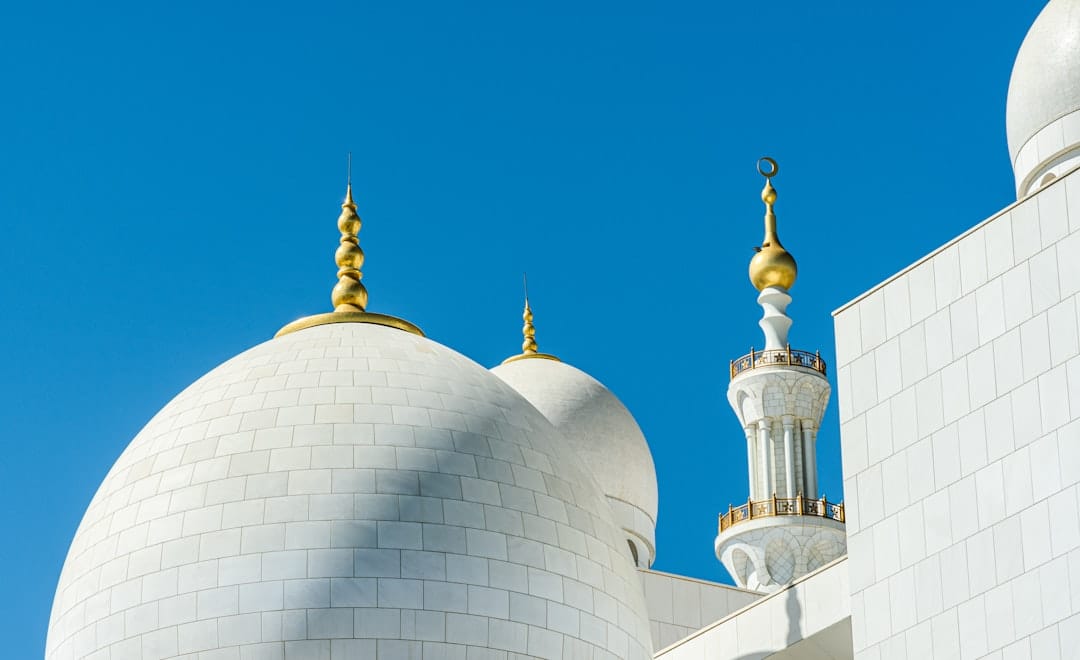Journeys have always held a special place in the Islamic tradition—from the Hijrah of Prophet Muhammad ﷺ to the modern-day Umrah and Hajj. Today, millions of Muslim travelers explore the globe for business, education, leisure, and spiritual growth. Yet moving through airports, hotels, and foreign cities while maintaining Islamic values can feel daunting. This Islamic Travel Etiquette Guide distills Qur’anic teachings, Prophetic practices, and contemporary fatwa into practical, halal tips that ensure every mile you cover is respectful, faithful, and spiritually rewarding.
Understanding Islamic Travel Etiquette
Islamic travel etiquette is the body of divinely guided norms and culturally sensitive behaviors that enable Muslims to fulfill religious obligations while interacting ethically with people and places. It blends fiqh (jurisprudence) rules—such as shortening prayers (qasr) and combining them (jam‘)—with high moral conduct (akhlaq) exemplified by the Prophet ﷺ. Its purpose is to transform every trip into an act of worship (ibadah) and a means of positive dawah (invitation to Islam).
The Spiritual Lens of Travel in Islam
- Intention (niyyah): Like every deed, travel begins with a sincere intention—seeking Allah’s pleasure, earning halal livelihood, or visiting family.
- Gratitude & Contemplation: Moving across diverse landscapes increases awareness of Allah’s signs: “Do they not see that they are brought once alive after death?” (Ar-Rum 30:19).
- Trust in Allah (tawakkul): While taking precautions—booking tickets, packing—is necessary, ultimate reliance rests on Allah.
Key Components of Islamic Travel Etiquette
1. Pre-Travel Spiritual & Legal Preparation
1.1 Clarifying Intention & Istikharah
Before clicking “Book,” pray the two-unit nafl of istikharah, asking Allah to facilitate what is best. Record your intention in writing to keep the heart focused.
1.2 Financial & Ethical Checks
- Halal funds: Ensure trip money is free of riba (interest) and earned lawfully.
- Debt clearance: The Prophet ﷺ said, “The soul of a believer is held hostage by his debt until it is paid.” (Tirmidhi)
- Travel insurance: Contemporary scholars allow it under the principle of darurah (necessity), but choose takaful or ethical providers when possible.
1.3 Essential Documents & Duas
- Carry digital and hard copies of passport, visa, vaccination certificates.
- Memorize the Prophetic dua for travel: “Subhan alladhi sakhkhara lana hadha…”
- Download a Qibla compass and prayer-time app with offline capabilities.
2. Packing with Halal & Ethical Mindset
2.1 Clothing & Modesty
Pack according to destination climate while maintaining Islamic modesty. Men should bring knee-covering shorts only for private areas like hotel pools. Women need loose, opaque garments—abaya, wide-leg pants, breathable hijabs—plus swim hijab if water activities are planned.
2.2 Toiletries & Medication
| Category | Halal Checklist | Travel Tips |
|---|---|---|
| Personal Care | Alcohol-free mouthwash, halal-certified deodorant, vegan soap without pork derivatives | Use solid shampoo bars to avoid liquid restrictions. |
| Medication | Verify capsule shells are not gelatin from non-halal sources; ask pharmacist for halal alternatives or vegetarian capsules | Keep prescriptions in original packaging along with doctor’s letter for customs. |
2.3 Tech & Entertainment
- Load devices with Quran apps that work offline to reduce data usage and distraction.
- Curate a halal podcast playlist—lectures on seerah, tajweed, or language learning.
- Install a privacy screen protector to prevent inadvertent display of Quranic verses in public.
3. Airport & Transit Etiquette
3.1 Security Checks & Physical Contact
Politely request same-gender officer for pat-downs if required. Most airports will accommodate; carry a small card stating: “For religious reasons, I request a same-gender security screening.”
3.2 Prayer Spaces & Timing
- Many international airports offer multi-faith prayer rooms. Verify on Sleeping in Airports or the airport’s website.
- If no room exists, find a quiet corner, lay your travel mat, and shorten (qasr) your prayer; you may combine Maghrib and Isha during long layovers.
3.3 Eating & Drinking Onboard
- Pre-order halal meal at least 48 hours in advance, specifying no alcohol-based sauces.
- Verify packaging for the halal certification logo before eating.
- If halal meal is unavailable, choose vegetarian or seafood options, bismillah still recited.
- Politely decline complimentary alcoholic beverages; request juice or water instead.
4. Accommodation Ethics
4.1 Choosing Halal-Friendly Hotels
Look for “Muslim-friendly” certification (e.g., CrescentRating) or key indicators:
- Qibla direction in room
- Alcohol-free environment or floors
- Halal breakfast buffet
- Female-only spa hours or swimming pool slots
- Nearby mosque within walking distance
4.2 In-Room Etiquette
- Qibla Check: Use the hotel’s provided arrow or your phone; if arrow is inaccurate, adjust accordingly.
- Minibar: Request removal of alcoholic beverages at check-in to avoid accidental charges and temptation.
- Energy Conservation: Turn off lights and AC when leaving—an overlooked environmental sunnah.
4.3 Privacy & Lowering the Gaze
Draw curtains fully before changing. In hallways, keep gaze modest, offer brief salam to Muslim staff, and avoid idle chat with opposite gender.
5. Eating Out: Halal & Thayyib Away from Home
5.1 Spotting Authentic Halal Restaurants
| Indicator | What to Look For | Red Flags |
|---|---|---|
| Certification | Local halal authority stamp (e.g., JAKIM in Malaysia, HFA in UK) | Only Arabic signage without official logo |
| Staff Answers | Clear knowledge of meat supplier, stunning procedures, alcohol use in sauces | Vague replies like “it should be halal” |
| Kitchen Visibility | Open kitchen showing separate utensils, grill sections | Shared fryers with bacon |
5.2 Vegetarian & Seafood Fallbacks
- In Japan, choose shojin ryori (Buddhist vegan cuisine) at certified temples.
- In Nordic countries, rely on salmon dishes but confirm no wine or pork broth is used in preparation.
5.3 Tipping & Ethical Consumption
Tip 10–15 % where culturally expected, calculating only on halal items. Reject excessive food waste; ask for smaller portions or share dishes.
6. Prayer & Worship on the Move
6.1 Finding or Creating a Musalla
- Use apps like Muslim Pro or local mosque directories.
- In parks, choose a clean patch away from footpaths; place a small mat to demarcate pure space.
6.2 Shortening & Combining Prayers (Qasr & Jam‘)
According to the majority of scholars, travel exceeding 83 km / 52 mi (or causing hardship) permits:
- Qasr: Four-rak‘ah prayers become two.
- Jam‘ Taqdim or Ta’khir: Combine Dhuhr with Asr, and Maghrib with Isha either at the earlier or later time.
- Note: Fajr and Maghrib are never shortened, only combined if allowed.
6.3 Friday Prayer (Jumu‘ah) While Traveling
If you arrive in a city before noon and will stay until after prayer, attending Jumu‘ah is obligatory. Otherwise, observe Dhuhr (qasr).
7. Interacting with Locals & Fellow Travelers
7.1 Greetings & Cultural Sensitivity
Begin with as-salamu alaykum to identifiable Muslims; for others, a warm local greeting shows respect. Learn basic phrases:
- Brazil: “Olá” or “Bom dia”
- Türkiye: “Merhaba”
- South Korea: “Annyeong haseyo”
7.2 Dawah Through Deeds
- Pick up litter in public spaces—sunnah of cleanliness.
- Offer your seat to elderly passengers; explain it’s part of your faith when asked.
8. Shopping & Souvenirs
8.1 Avoiding Doubtful Items
- No alcohol, pork skin wallets, or statues for veneration.
- Support local artisans selling ethically made textiles, spices, or Islamic calligraphy.
8.2 Bargaining with Integrity
The Prophet ﷺ advised: “The buyer and seller retain the option (to annul) until they part.” (Bukhari) Bargain respectfully; don’t undercut a fair price to the point of injustice.
Benefits and Importance
Spiritual Upliftment
Every compliant meal and shortened prayer becomes a living testimony of tawhid. Travelers return home with heightened gratitude and a deeper connection to the global ummah.
Positive Representation of Islam
A single interaction—returning lost property or apologizing for queue confusion—can reshape stereotypes and invite curiosity about Islam.
Personal Safety & Well-being
Halal food choices reduce risk of consuming harmful additives. Modest dress lowers chances of harassment. Regular prayer breaks provide mindful pauses that prevent burnout.
Economic Impact
The halal travel sector is projected to exceed USD 300 billion by 2030. Muslim travelers who demand halal-friendly services incentivize hotels and airlines to adopt ethical standards benefiting broader society.
Practical Applications
Case Study 1: 4-Day Business Trip to Tokyo
Preparation: Booked hotel near Otsuka Mosque on booking.com with “halal-friendly” filter. Meals: Located Nar


Post Comment